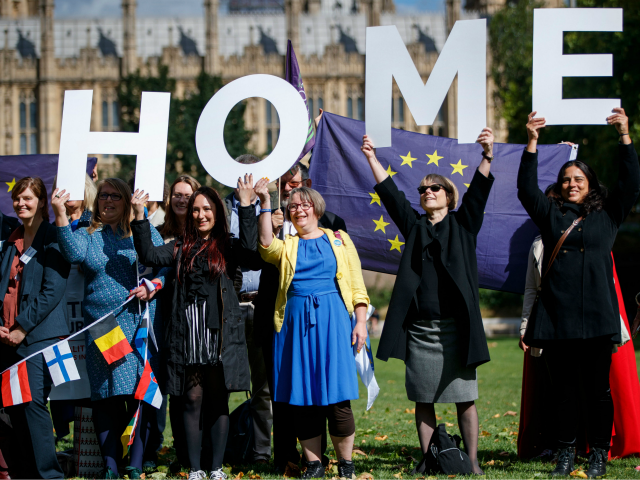The UK has made another major concession to the European Union (EU) in Brexit talks, allowing any EU nationals coming to Britain before Brexit day in 2019 to have their rights protected, probably being allowed to stay.
Previously, the UK had wanted the cut-off date to be the 29th of March this year, when article 50 was triggered, to stop a last-minute rush of migrant arrivals.
However, since numbers have begun to fall, the UK has quietly conceded to the EU’s demands to give full rights to all those arriving during the two-year article 50 period of negotiations, an EU source told the Guardian.
One diplomatic source with knowledge of the behind the scenes discussions added: “The UK has been softening up on the first cut-off date. At first, they didn’t want it to be put at the Brexit date.
“Now, while they are not saying it publicly that it will be Brexit date, it is clearly understood that it will be.
“That is because something happened in the meantime: people stopped coming, or started coming in much lower numbers and some are leaving and industry and NHS are pointing that out.”
In line with the EU’s hardline, uncompromising stance on Brexit, the European Parliament had threatened to veto any withdrawal agreement that set the cut-off date earlier than the 29th of March 2019.
Brexit Secretary Says Talks Will ‘Probably Favour’ EU
https://t.co/E00J2JW9Nq— Breitbart London (@BreitbartLondon) November 1, 2017
Despite the claims, a spokesman for the Department for Exiting the European Union described the suggestion that the UK government had accepted a later cut-off date as “nonsense”.
He added: “The specific date will be discussed as part of the negotiations, but it will be no earlier than the day we triggered article 50, and no later than the UK’s exit from the EU.”
Last week, it was reported that the population of the UK is projected to shoot up by 3.6 million (5.5 per cent) over the next 10 years, with more than half of the growth due to mass migration.
The UK has already been offering EU migrants with continuous residence of five years or more “settled status” with indefinite leave to remain, with full access to education, welfare, healthcare, and pensions.
Those who have moved to Britain before the cut-off date can apply for temporary leave to remain until they have been here five years and can apply for “settled status”.
EU nationals arriving after the cut-off date will be given a “grace period”, likely to be two years, after which they can apply for another immigration status.
Concessions made to EU negotiators, who say they will not move “one iota” from their mandate, are already many.
Prime Minister Theresa May has said there will be Brexit “transition period” of around two years and implied the UK will pay the bloc tens of billions, despite having no legal obligation to do so.
Mrs. May has also hinted that EU courts could retain power in Britain after Brexit, something described as a form of “colonialism” by experts and leading Tory MP Jacob Rees-Mogg.

COMMENTS
Please let us know if you're having issues with commenting.